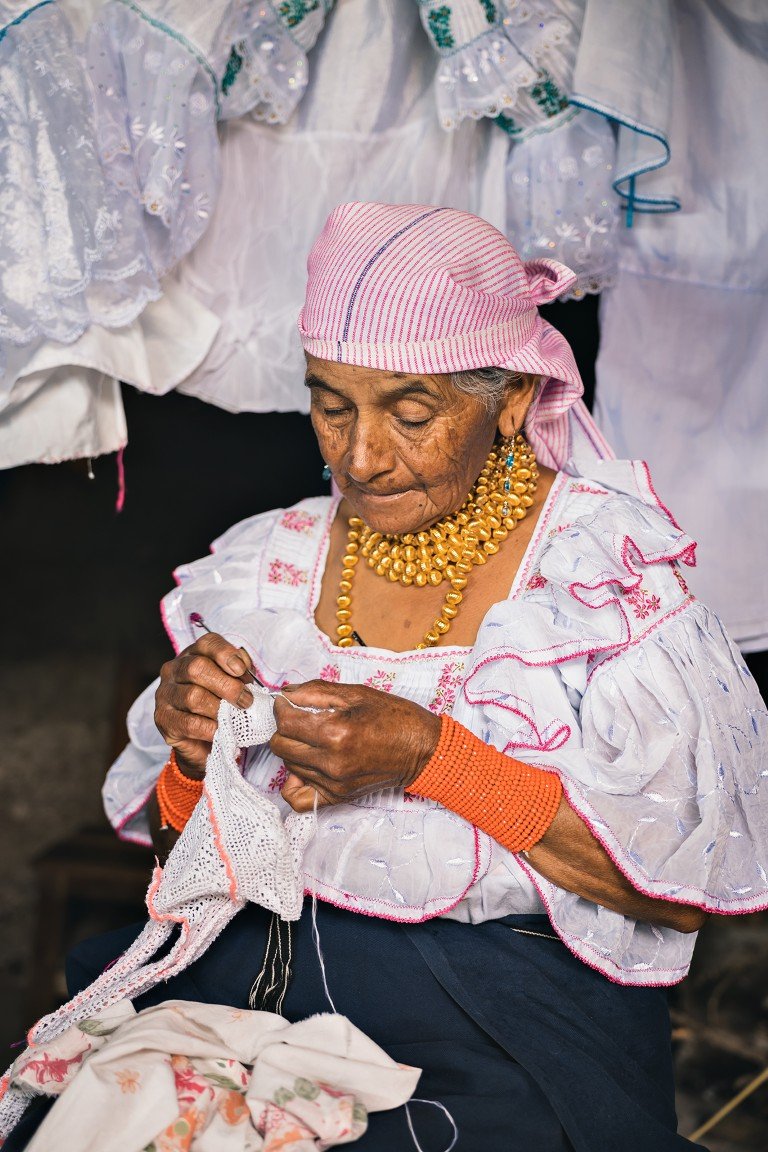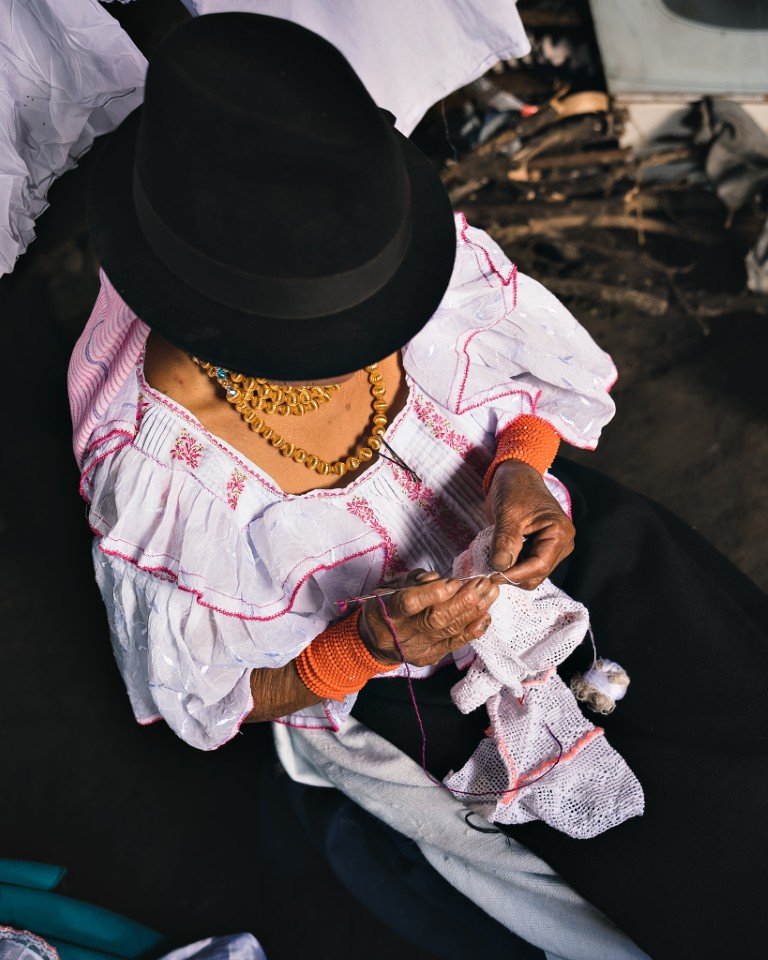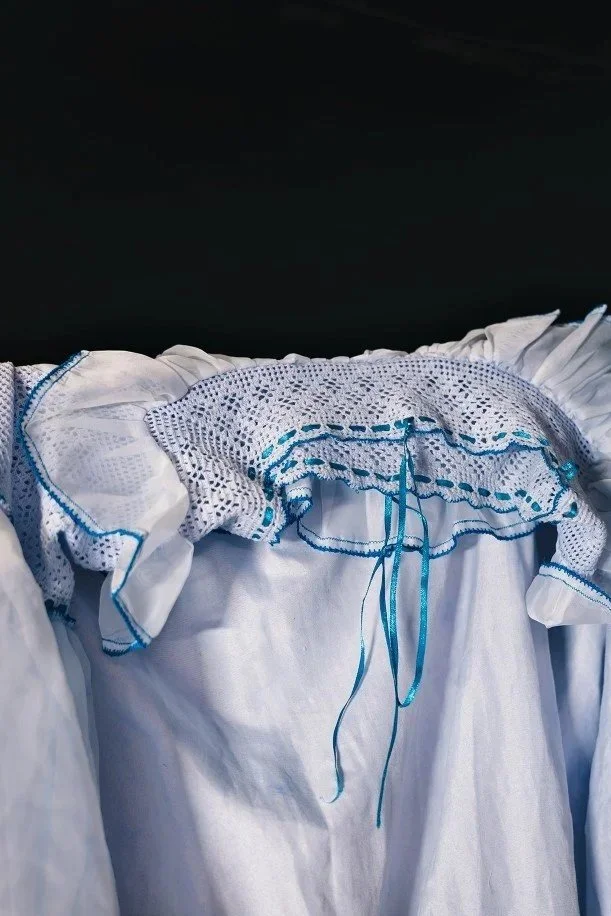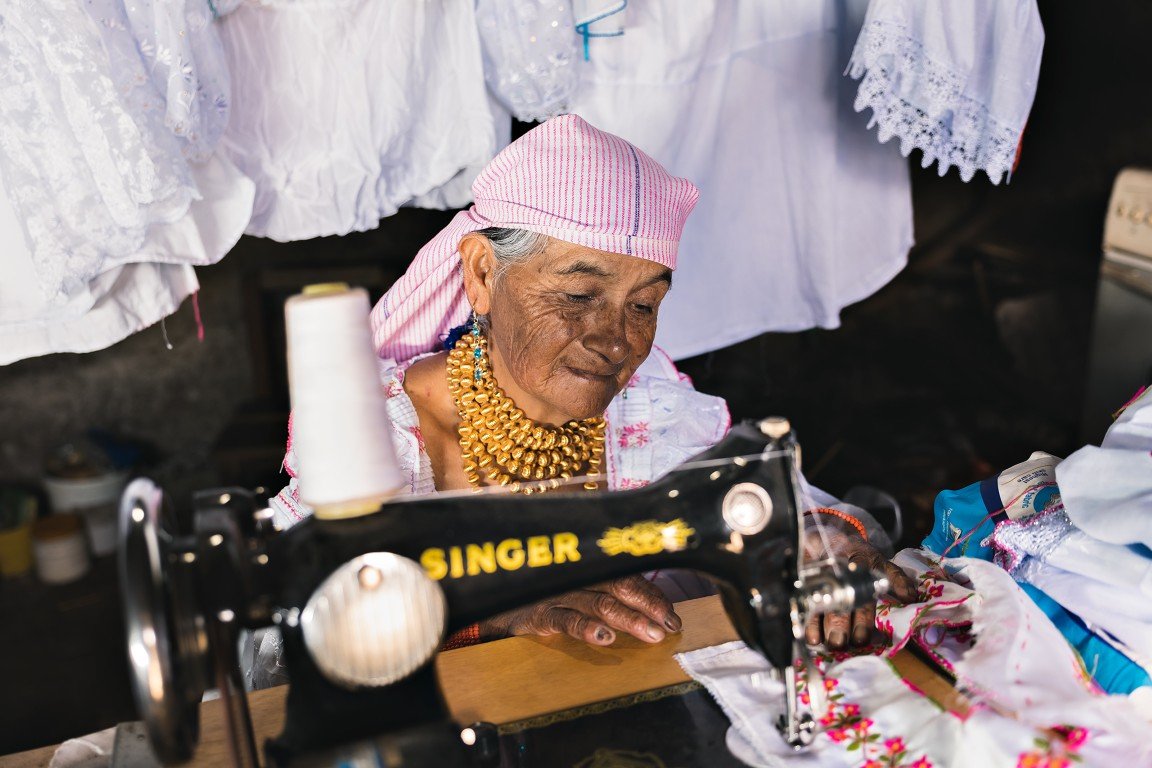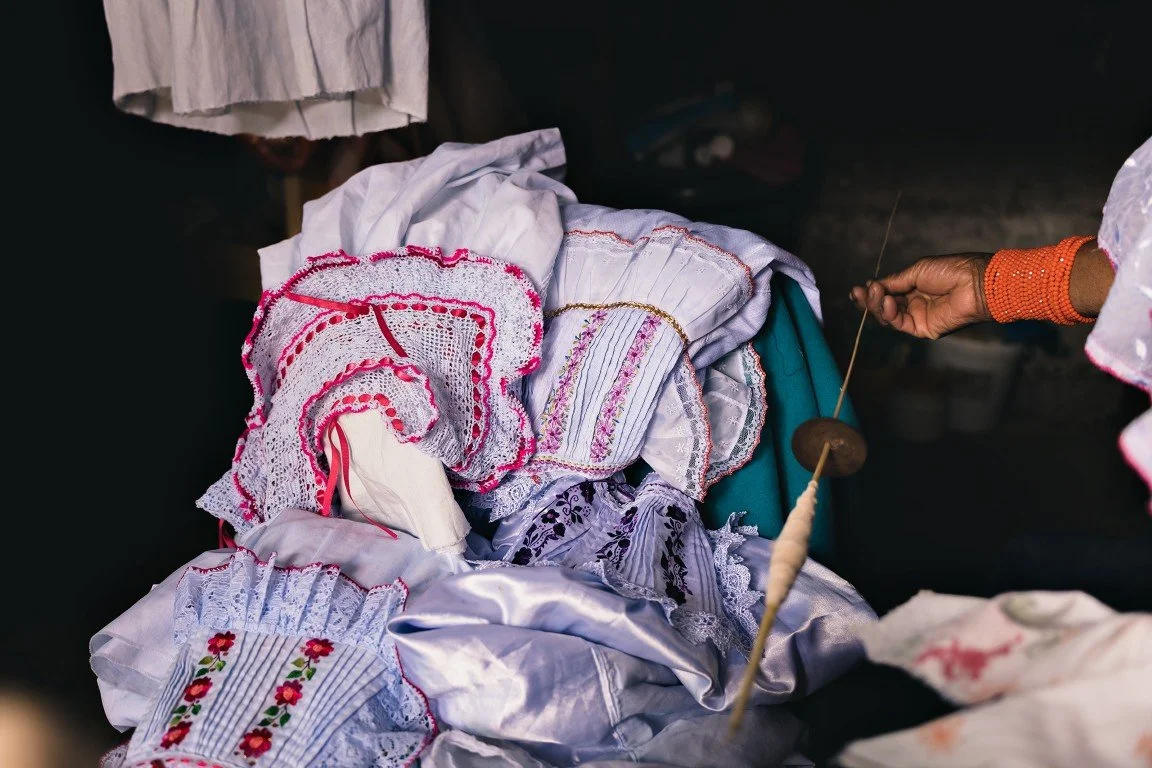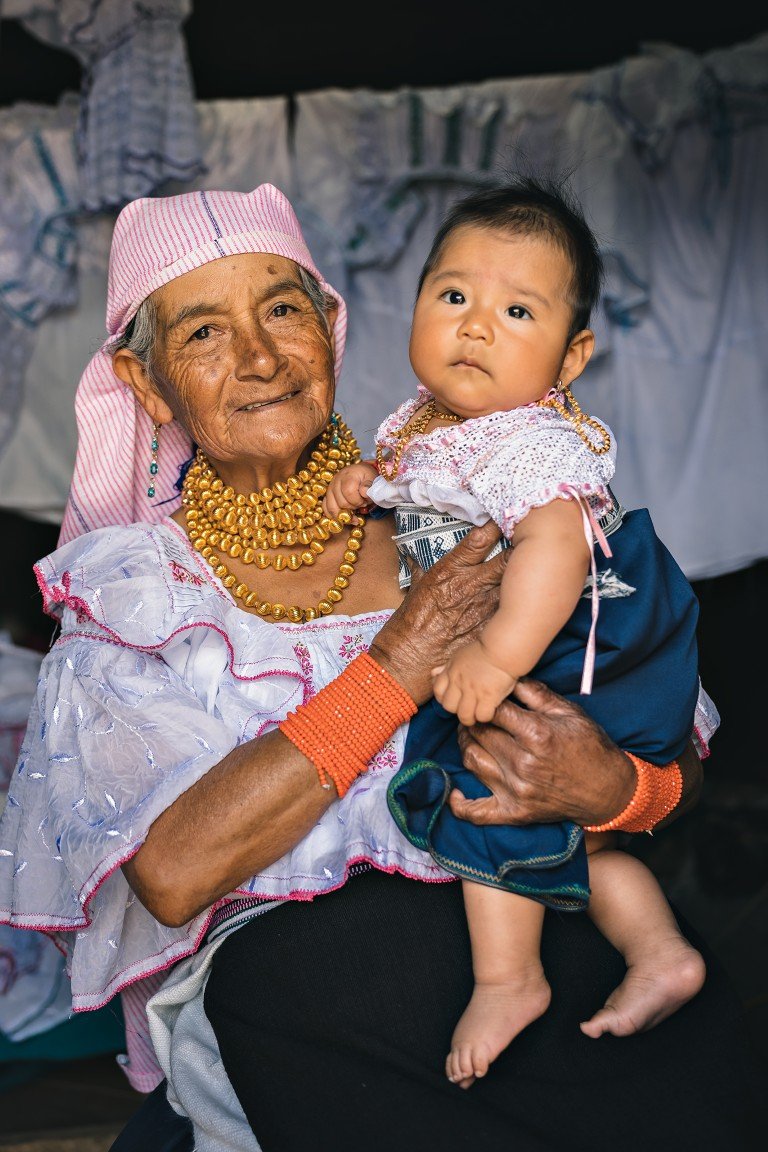
Marcelina Andrade
Guardian of Traditional Shirt Weaving of Cotacachi
María Marcelina, affectionately known as Mama Marcelina, is a prominent traditional embroiderer from the Cotacachi canton, born in the community of Potrerillo, in the Imantag parish. From an early age, she faced great challenges: the loss of her mother during her childhood deeply marked her life. It was her aunt who, with tenderness and firmness, taught her the art of embroidery, passing on not only an ancestral technique but also a form of resistance and a path to achieve her dreams.
Each stitch in the shirts that Mama Marcelina makes is filled with history, effort, and hope. She learned to make traditional shirts such as the Pito, Chola, and batas, garments that are emblematic of Kichwa-Otavalo identity. These crafts not only became her main source of livelihood but also the means by which she was able to educate her children.
Over time, she acquired her first sewing machine, a tool that allowed her to innovate within the bounds of tradition. Despite external influences and contemporary fashions, Mama Marcelina remained faithful to the inherited designs, preserving the cultural essence of each garment she embroidered.
Her dedication to the art of embroidery transcended conventional spaces: she embroidered while grazing her cattle, taking advantage of the sunlight, and in the early hours of the morning she continued by the light of a lamp. This unwavering dedication speaks of a woman who has made embroidery not just a trade, but a way of life.
One of Mama Marcelina’s greatest legacies has been the transmission of her knowledge to other women in the community. Thanks to her teaching, new generations now wear these garments with pride and dignity, especially during celebrations such as Inti Raymi, community dance competitions, or school performances, where the blouses made by her are often the main attraction.
Her mastery ranges from simple stitches like the chain stitch to elaborate floral designs, “cocos,” and the traditional alku pata (dog’s paw). Embroidering a Pito shirt, for example, can take her two to three weeks of continuous work. Although her eyesight has diminished over time, her hands, faithful to the body’s memory, continue to trace each shape, each symbol with precision.
Mama Marcelina represents a pillar of the living memory of her community. Her work is not only artistic; it is a declaration of identity, an offering to ancestral culture, and a testament to the transformative power of traditional art.
Digital Textile Map
*
Digital Textile Map *
Gallery
*
Gallery *

